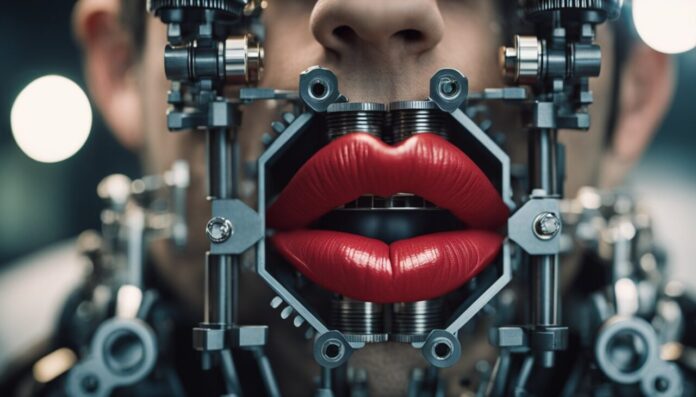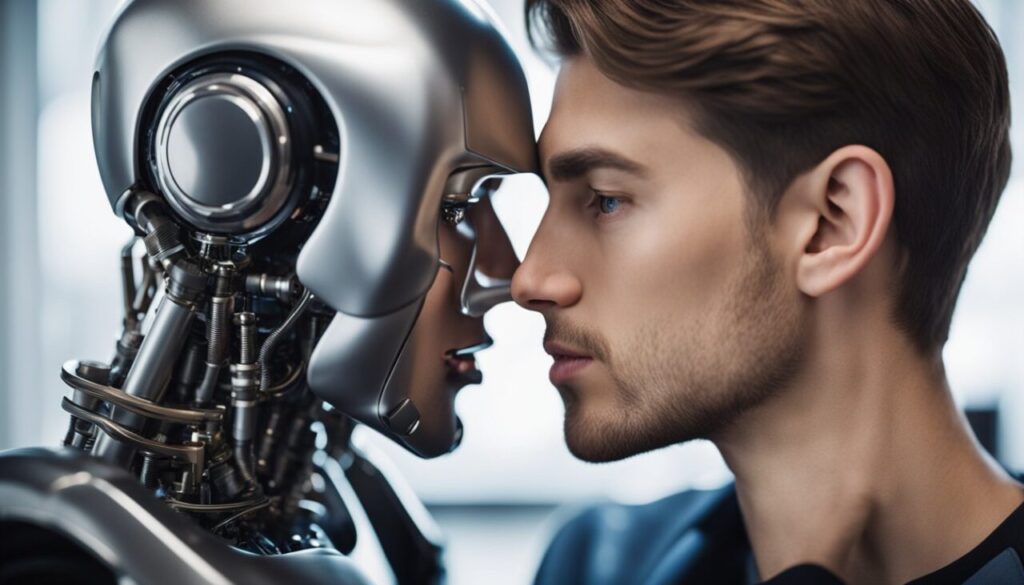
Sex robots will become a regular part of society. Unfortunately, the scary future of sex robots and love dolls seems inevitable. Primarily this is because we humans are always thinking about ways to invent new things and improve the current life experience.
It is in human nature. However, we should sometimes be wise enough to decide that even though we have the ability to do something (or build something), maybe we should choose not to do it. For example, the Manhattan Project was a research and development project happening during World War II that yielded the first nuclear weapons.
The United States led it with help from the United Kingdom and Canada. Maybe if the team of scientists and politicians included in that project had enough wisdom to decide not to do it even though they had enough scientific and engineering knowledge, the history of the world would be completely different than it is now. Maybe better, maybe worse; we can’t know.
How is this related to Sex Robots, you may think? Well, the invention of Sex Robots could potentially reinvent human society and interactions as we know them.
And probably not in a good way.
In history, humans’ desire to have sex with something inhuman is not new. So, one would think that we are somehow connected with those weird desires only in recent times. Not really. For example, in ancient Greek mythology, Pygmalion fell in love with one of his sculptures that came to life.
Essentially, the young sculptor was disgusted by vulgar real women, so he sculptured a virginal maiden for himself. The basic idea of that myth was a popular subject for Victorian-era English playwrights where, for example, George Bernard Shaw had a play with the same name.
Although the Pygmalion myth is often presented in modern times as a romantic love story, the tale is an unnerving description of one of the first female android sex partners in Western history.
Fast forward to modern times, and we can see a lot of flirting with the idea of sex robots. In two relatively recent movies, Her and Ex Machina, filmmakers explored an intriguing concept; whether humans will fall in love with AI or robots and want to have sex with them in some way.
Both movies have exciting plots and potentially even more exciting consequences. In those movies, the writer explores the idea of love and relationship more than the idea of pure sex and pleasure. And this idea exists nowadays more than ever.
Consequently, the product of imagination to create almost real sex robots is here in our lives. You can already buy all kinds of sex dolls created from different materials on the market.
Some of them are pure silicon and cannot make any interactions, but some (and especially in recent times) have built-in AI capabilities, and they can interact with real humans.
And those interactions can vary, from pure sex and pleasure to somewhat coherent speaking. Of course, the latter is also rather significant, but in my opinion, sex capabilities will be the first to blame for transforming society as we know it.
Imaginary Person and Love Dolls

So, let’s create an imaginary person in a not-so-far-away future where sex dolls and robots are affordable and realistic. Let’s call that person Adam.
One day Adam comes home after his stressful day at work, says “Hi” to his wife, and they carry on in normal couple conversation. Later that night, his wife, Ella, goes to bed, and Adam starts researching sex robots. Soon enough, he finds out that sex robots are not only affordable (1000-5000 dollars), but they are looking great and can be delivered to his doorway in 5 working days.
After a couple of beers, Adam decides to order one. What the heck?
It can be exciting and potentially spice things up in a relationship, Adam is thinking to himself. On Friday next week, a sex robot named Lucy arrives, and everything starts to change.
Ella is not really satisfied with the new product in the house, but she accepts it/her as it is. They even begin to have mutual fun with Lucy. But then, after a couple of days, many things start to fall apart.
First, Adam starts to have sex with Lucy on an hourly basis because now he can explore all his sexual desires.
Second, he begins to leave his job to have sex with Lucy on every possible occasion.
Third, he starts to ignore his wife as the days go by.
Fourth, he is now sitting all day long on his couch together with Lucy doing weird things.
Fifth, he starts to fall in love with Lucy even though his mind tells him this is not normal.
Six, he loses his job.
Seven, his wife leaves him.
Eight, he is still satisfied with Lucy because he can have sex all day, every day.
Nine, he can order additional parts for Lucy, so she looks different every couple of months.
Ten – he completely loses connection with real-life and with everything normal and sane.
The Consequences

Now multiply this with a couple of hundred million or even billions of men. How many men would try out Lucy if she was affordable and available?
And how many would get addicted?
I would say we that can talk about a pretty significant percentage of men. Of course, there will also be male robots, and the percentages of women desiring one will also probably skyrocket.
What will happen with human relationships, reproduction, economy, and sanity if all those examples become a reality? In my opinion, things could get really messy in our world in only one generation (or even in 20-30 years).
I can easily imagine 10% of men not wanting to do anything but only hang out with their sex robots. Then I can imagine that another 10-20 percent of people will completely lose interest in other (or any) gender.
If an additional 10-20% of people decide somehow to introduce sex robots in their lives, then we are talking about 50% of the adult population.
That’s a considerable number to change the fundaments of any society. Repercussions of only small percentages of people deciding to build any kind of relationship with sex robots are of incredible proportions.
There will be fewer children in the world. There will be fewer proper relationships, and those are some of the fundaments of our society.
Then some ultra-leftist groups will start to make rallies for sex robots, asking for their special toilettes (even though Lucy and their robot sisters don’t need one).
Conclusion

In summary, we are potentially fu*ked big time in the future with this imaginary scenario, and I mean that literally (by sex robots) and figuratively. Even though this sounds harsh, try to imagine if sex robots and dolls become a reality like today’s smartphones are.
Nobody predicted 30 years ago how much disruption smartphones would make. In that way, nobody can predict what sex robots will do to humanity, but if they impact it only in a small percentage compared to what smartphones and social media did, well, then we are in one hell of a ride which will change the whole fabrics of society.
Some day, will there be an international beauty pageant for sex robots? I think it will be, and this is enough to think twice about the development of those “gadgets.” The same goes for some categories of virtual reality products, but that’s another (but very connected) story.



























